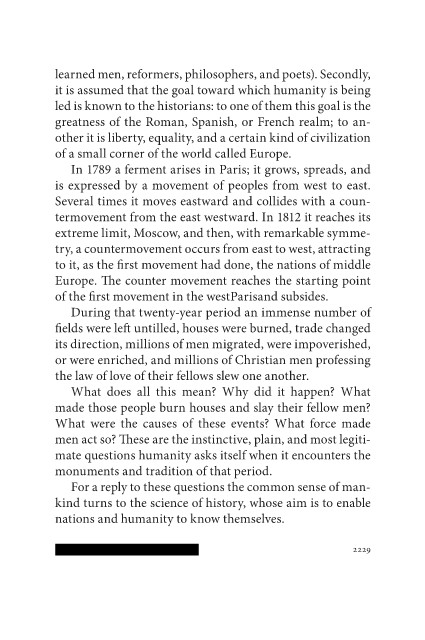Page 2229 - war-and-peace
P. 2229
learned men, reformers, philosophers, and poets). Secondly,
it is assumed that the goal toward which humanity is being
led is known to the historians: to one of them this goal is the
greatness of the Roman, Spanish, or French realm; to an-
other it is liberty, equality, and a certain kind of civilization
of a small corner of the world called Europe.
In 1789 a ferment arises in Paris; it grows, spreads, and
is expressed by a movement of peoples from west to east.
Several times it moves eastward and collides with a coun-
termovement from the east westward. In 1812 it reaches its
extreme limit, Moscow, and then, with remarkable symme-
try, a countermovement occurs from east to west, attracting
to it, as the first movement had done, the nations of middle
Europe. The counter movement reaches the starting point
of the first movement in the westParisand subsides.
During that twenty-year period an immense number of
fields were left untilled, houses were burned, trade changed
its direction, millions of men migrated, were impoverished,
or were enriched, and millions of Christian men professing
the law of love of their fellows slew one another.
What does all this mean? Why did it happen? What
made those people burn houses and slay their fellow men?
What were the causes of these events? What force made
men act so? These are the instinctive, plain, and most legiti-
mate questions humanity asks itself when it encounters the
monuments and tradition of that period.
For a reply to these questions the common sense of man-
kind turns to the science of history, whose aim is to enable
nations and humanity to know themselves.
2229

